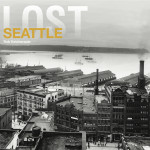Wow. This is a solid work of fiction.
For the first 50 or 60 pages, I was simply shocked that this was turned into a motion picture. Why would Hollywood choose to make a movie about using drugs, dealing drugs, buying drugs, overdosing on drugs, undercover surveillance of activities related to drugs, burning out on drugs, getting babies hooked on drugs, getting your sister hooked on drugs so you can pimp her out, etc etc etc?
I feel like I need to finally read Fear and Loathing in Las Vegas and watch the movie adaption again to help answer that question.
Meanwhile, Philip K Dick went on a bad trip for the next 150 pages. Our main character, Bob/Fred, is an undercover narcotics officer in LA who's gone too deep and has gotten addicted to the drug he's investigating: Substance D. It's a horribly addictive and debilitating drug, that rapidly chemically rots the user's brain. It's also unbelievably cheap, leading many to the conclusion that an enemy nation is trying to undermine American society.
After presenting this scenario, Dick sends his main character into a downward spiral of intoxication and paranoia. The text transitions so smoothly from the relatively sane opening that it becomes difficult for the reader to distinguish the boundary between reality and hallucination. It becomes a big sloppy mess of gray where we are led to more crazed questions than even Fred.
Is Fred really undercover as Bob? Or is he really one of the other three principals, or maybe a fringe character? Isn't there something not quite right about Donna? About Barris? Isn't Luckman surprisingly together? Is Substance D really a conspiracy against America? Could the federal government be backing its production? What are the economics behind it? Who is Fred's superior, Hank? Is he one of the subjects under surveillance?
We are left following every clue, questioning every fact, trying to create a pattern out of too small of a sample.
And then, lucidity in a bookending 50 pages. The fog breaks on a weakly lit day. Fred takes on a third persona and the facts are revealed to us at last. A plot so twisted, so broken, so inverted that it could only come from the mind of Philip K Dick.
Will Hollywood jettison most of the first half of the book? What will make it to the screen?
** 6/26
At one point Dick makes a reference to a Biblical phrase "a glass darkly." I finally got around to looking that up. Ends up it's from the Apostle Paul. Actually, end's up it's a very common phrase that I've somehow missed out on. There's a great discussion of the original Biblical text on this site, which describes that it really means something like "now you can only see an imperfect image of yourself in a mirror; after death you will come face to face with the real you".
In reality, though, I think Dick is making a reference to the Bergman movie Through a Glass, Darkly, Oscar winner for foreign film in 1961, when Dick was at his peak and not yet involved in drugs. I'd like to see this movie now, knowing the connection. Wikipedia's short description indicates it explores the subtle terror of schizophrenia. Without a doubt, that describes A Scanner Darkly as well.

